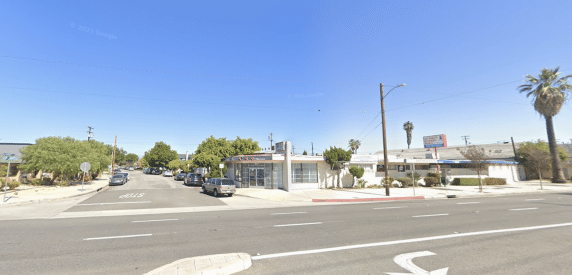
If you are one of the people arrested, you may find yourself in jail for months before your court appearance. This process could be exhausting and could also negatively affect the overall effectiveness of your defense.
Posting bail with the services of a bail bond agency is one of the most effective ways to ensure your freedom. If you are looking for a local San Fernando bail bonds agency, get in touch with us at Cali Bail Bonds for assistance.
Bail is a monetary sum imposed by the court as a type of insurance between both the accused and the court. The accused can submit their bail in cash, unfortunately, many people are unable to do so. Because bail is frequently set at a high level, most defendants are unable to post bail on their own. They seek assistance from a bail bondsman, who will post a bail bond on their behalf. A bail bond is a sort of surety bond that ensures a defendant's release from jail and is issued by a surety bond agency through a bail agent or bail bondsman.
When an individual is arrested and charged with a crime, they may be able to escape jail time while their case is being processed. The defendant can post bail to ensure that they will appear in court when required if the judge allows it. If they show up, the money will be returned to them.
If the defendant does not present themselves, the money will be forfeited, and they may face charges of bail jumping. This is a separate offense with consequences that are in addition to those imposed for the original offense. Even if a defendant is not convicted of the initial offense, they might be convicted of bail jumping. The following are the different types of bail:
A property bond is a type of bail bond that uses a person's belongings to guarantee bail payments. Larger assets, such as a house, automobile, or other property, are usually included. The property is then claimed by the court. In the event that the accused fails to appear in court, the courts may seize these items and force the accused to feign ownership in order to meet the cost of bail.
Using one's property as a means of paying bail should be done with caution and only as a last option. Losing a home, land, or automobile can lead to financial hardship long after the accused's legal issues have been resolved.
This is most likely the most common sort of bail. A cash bail bond is one that is paid in full with cash. If you, the defendant, have the financial means, this is by far the greatest option. The reason for this is that once you have attended all of your court dates and appointments and your trial has concluded, you will receive a refund of the entire bond amount. You do not lose any money if you pay cash bail.
If a judge wants to ensure that the accused stays in jail during their trial, he or she may set the cash bail at a very high amount. This sort of bond is frequently utilized when the judge believes the accused is a flight risk or a public safety risk. If the accused fails to appear in court for their scheduled hearings, their bail is forfeited, and a warrant for their arrest is issued.
When the accused person cannot afford to pay the amount imposed by the officiating judge, a surety bond is frequently used. A bail bondsman, who is usually an employee of a surety firm, is contacted by a relative or a friend. These agents will accompany the accused person to court and promise to pay the whole sum owed if the accused person fails to appear in court.
The accused or the accused's relatives will be charged a premium, and the bondsman may keep some substantial personal belongings as collateral. If the accused fails to appear in court, or if the relative refuses or is unable to repay the bondsman, there may be serious consequences, depending on the accused's local jurisdiction. They may be pursued by bounty hunters, who will collect a percentage of the bond amount in exchange for the accused's surrender to the authorities.
The arresting officer essentially issues a citation to the accused. If the officer cites a criminal violation, this ticket will serve as a court summons. If an accused individual fails to appear in court on the scheduled date, he or she may face additional legal consequences. A warrant for their arrest may be issued, and they may face jail time. A citation is frequently issued for minor legal infractions.
A recognizance release, also known as being released on your own recognizance, is the second most acceptable sort of bail in terms of the defendant's involvement. The defendant does not have to pay anything upfront to be released on recognizance.
If a judge decides to release someone on their own recognizance, it means that the accused is solely responsible for attending court appearances and that no bail money is required. If the accused individual does not comply with these requirements, they may be held in custody until their trial or sentencing. For high-risk cases, recognizance bail is usually not granted. Recognizance bail will not be granted if a person is regarded as a flight risk or a danger to others.
If someone is being held by the federal Immigration and Customs Enforcement agency, or ICE, they will require an immigration bond in order to be released. An immigration bail bond is similar to a surety bond in that you pay a premium to a bond agent and they put up the rest of the money to have the accused released.
If the accused is ordered deported, they must attend all of their immigration hearings and report to ICE. If they fail to appear for any hearings or do not report for deportation, their bond will be forfeited, and an arrest warrant will be issued.
An arrest kicks off a complicated and lengthy bail bonds process. When police officers have probable cause to believe that a crime has been committed, they make an arrest. They take the person to jail and confine him or her to a cell.
After that, a judge holds a hearing to assess the probable reason for bail charges and rapidly sets bail. Bail is the sum of money that must be paid in order for a person to be released from jail. It is a monetary incentive for a person to return to Los Angeles County for a possible bail hearing.
Defendants must either pay the court for bail or a bail bondsman's fee. The bail agent will put up the money required for an individual to be bailed out in exchange for a 10% fee. An individual gets freed from jail once the bail amount has been determined and the bail bond agency has received payment. If they breach any of the terms of their release for whatever reason, they may be compelled to return.
When it comes to determining bail booking and how to get bailed out in San Fernando, there are a few key elements to consider. The severity of a case is one of them. Severe situations might result in lengthier jail sentences and a larger incentive for someone to skip bail. An individual's ability to flee is also a factor. Defendants with international connections or private jets are frequently imprisoned without bail or with hefty bail payments.
Prosecutors must make bold claims to establish that a defendant is unable to complete the bail-based jail release process. In most circumstances, the Eighth Amendment will protect them from high bail. The majority of first-time offenders charged with minor offenses do not have to worry about large bond sums or hiring a bail bondsman. Many offenders are even let go on their own recognizance. These offenders just make a pledge to appear in court and are not obligated to employ a bail agent to begin the jail release procedure.
When someone is arrested, the bail process begins. They are frequently taken to jail and put through the booking process by the arresting officer. They are then photographed and stripped of their belongings for the time being. Depending on their specific circumstances, the booking process can take anywhere from 2 to 4 hours or more. They are not allowed to be visited or have a bail bond posted until their booking process is completed.
Then the defendant is presented before a judge. The judge decides if there is sufficient evidence to support bail charges. If there is, the defendant is usually detained until their court date and a formal hearing on their bond charges. They can then finish the bail process by posting bail and being freed from custody. The bail sum, on the other hand, is frequently higher than a defendant or their family can afford. In that instance, the defendant contacts a bail bondsman and hires his or her services.
It's crucial to recognize that the defendant could be sent to one of the county's larger jails. Men can be taken to either the Men's Central Jail or the Twin Towers. Women could be taken to the Lynwood County Jail. If they are taken to one of these larger facilities, the bail process could take a long time to complete. It can take anywhere from 12 to 16 hours. This is why, if at all feasible, bail out your loved ones while they are still detained at one of the local jails for a quicker release.
An accused person speaks with a bail bondsman about their background, assets, and credit. After that, the bondsman determines what the accused must do in order to secure the bond. In order to get a bail bond agreement, there may be a signing of assets, a payment, or a combination of the two. The bail bonds agent secures a bond by signing and filing bail documents with the court once they have received money and are confident in the ability of the accused to pay their bond.
The bail bondsman is not needed to sign over the stated amounts every time he or she files bail with the court in many cases of a bail bond agreement. Instead, they sign a letter agreeing to pay the court the full amount of bail if the defendant fails to appear in court. The defendant is then released from custody and is free to prepare their defense without the constraints of incarceration.
The bail bonds process has a few prerequisites. A person must follow a specific procedure and sign bail papers with both the municipality and the bail bond firm. He or she must also have a specific amount of property and a method of acquiring it. Defendants are required to post a bond and pay a bail bondsman 10% of the total bail cost. They must be able to demonstrate that they can repay the bondsman.
Bondsmen are likewise subject to bail restrictions. A bail bondsman is required to have a minimum level of training and an official relationship with the court. He or she must be trusted to repay the money lost when people fail to appear for bail.
The legal fee of service for a bail bond is 10% of the total bail amount. This fee is non-refundable, and it should be made clear to you well before you sign the bond. However, in rare situations, if the Indemnitor meets specific requirements and conditions established by the bond agency's surety, the bondsman can legally charge 8% for the bond. If you meet such requirements, tell the bondsman right away.
There must be some assurance that the money will be paid if the defendant does not show up in order to sign the contract. If the defendant does not have enough collateral for the bail bond, they can seek assistance from a family member or friend. An Indemnitor is an individual who makes the bail arrangements and actually signs the contract.
Situations that necessitate a bail bond generally occur fast and without warning, therefore it is critical not to act hastily and to thoroughly read the contract before signing it.
The Indemnitor is the one who is in charge of the defendant's attendance at all court dates. There could be more than one and missing even one of them could have serious implications. You'll have to pay fines if they miss a court date. Payment for a recovery agent's services may be included in the fees. If the defendant does more than simply miss a court appearance and vanishes, you will be held accountable for the whole amount of bail.
When you sign a bail bond contract, you take full responsibility for the defendant. This contract is legal and binding, and it should not be signed in haste. You must examine the repercussions of what the defendant might do if he or she is under duress, as well as the consequences for you if this occurs.
There's no getting out of a contract once you sign it, even if it's hurting your finances or you've done everything you can to bring the defendant to their court dates. You can only be released from a bail bond contract if the bail bondsman cancels it on your behalf. This is a rare occurrence that is unlikely to occur.
When the defendant has completed all of the court's requirements, the contract is no longer enforceable. When the court case is over, you are no longer responsible for any financial obligations.
If your loved ones or you get arrested in San Fernando, here is a list of jails and courts where they can be taken:
Cali Bail Bonds is ready 24 hours a day, 7 days a week to assist you in posting bail for your loved ones. We put in a lot of effort to ensure that your bail bonds are posted quickly and discreetly. Because we are knowledgeable, we can assist you in moving rapidly through the procedure so that your loved ones can return home as soon as possible. To speak with one of our representatives, call us at 562-376-5476.
"*" indicates required fields






